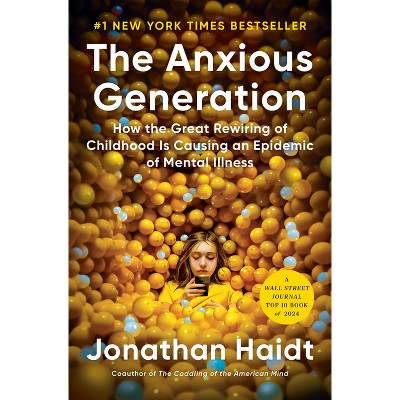About this item
Highlights
- Reactive attachment disorder (RAD) is a psychiatric condition affecting children that is characterized by inappropriate and sometimes disturbing ways of relating socially to others, including parents.
- About the Author: Rachael Stryker is Visiting Assistant Professor in the Department of Anthropology and Sociology at Mills College.
- 208 Pages
- Psychology, Psychotherapy
Description
About the Book
An in-depth exploration of the theory, implementation, and culture of attachment therapy to treat reactive attachment disorder (RAD) as it is practiced in Evergreen, Colorado, the center of RAD treatment in the United States.
Book Synopsis
Reactive attachment disorder (RAD) is a psychiatric condition affecting children that is characterized by inappropriate and sometimes disturbing ways of relating socially to others, including parents. Relatively rare, RAD is thought to arise from a failure to form close attachments to primary caregivers in early childhood due to abrupt or prolonged separation, neglect, or abuse. In the United States, the incidence of RAD increased in the 1990s as Americans began to adopt an unprecedented number of formerly institutionalized children from orphanages abroad and from within American child welfare systems. To help resolve the extreme behavioral problems exhibited by their children, many adoptive parents are now turning to a controversial but popular treatment: attachment therapy.In The Road to Evergreen, Rachael Stryker provides an in-depth exploration of the theory, implementation, and culture of attachment therapy as it is practiced in Evergreen, Colorado, the center of RAD treatment in the United States. To understand RAD and the Evergreen model, Stryker conducted interviews with client families at an attachment clinic in Evergreen, other American adoptive families, participants in the Denver foster care system, and personnel at international adoption agencies and orphanages. At the center of Stryker's analysis is the disjuncture between the ideal of family life and the reality of caring for formerly institutionalized children. American parents who have pledged to offer unconditional love are at a loss when children offer indifference, hostility, destructiveness, or outright violence in return.Stryker demonstrates that the Evergreen model, with its goal of emotionally rehabilitating adoptees to prevent their eventual exile from families, is an important component of a cultural logic for preserving adoptive family in the United States. However, the therapy does not always deliver the promised happy ending. Stryker's clear and balanced account of attachment therapy will be useful in informing and reforming both adoption practice and pediatric psychology.
Review Quotes
Stryker examines the controversial Evergreen method of attachment therapy, commonly used as a last resort for children diagnosed with Reactive Attachment Disorder (RAD). While there is common consensus that RAD stems from a break in infant attachment to a primary caregiver, there is little consensus regarding effective treatment, including Evergreen therapy, the centerpiece of which is confrontation therapy with physical holding components. Stryker places both RAD and attachment therapy in a cultural context, arguing that adoptive families often view children as 'emotional assets' expected to make families 'real.' When RAD children, often referred to as 'kids without conscience, ' cannot exhibit the aesthetics and behaviors associated with the private nuclear family (the 'road to Evergreen'), parents often turn to extreme methods of attachment therapy, viewed by some as salvation and others as criminally exploitive. Stryker does an outstanding job of exploring the social construction of attachment, attachment disorders, and attachment therapies, placing them within the broader social family construction. A valuable contribution, written with contextual respect and clear academic aptitude; essential for academic libraries and essential for anyone in this field. (Starred Review)
-- "Library Journal"About the Author
Rachael Stryker is Visiting Assistant Professor in the Department of Anthropology and Sociology at Mills College.












